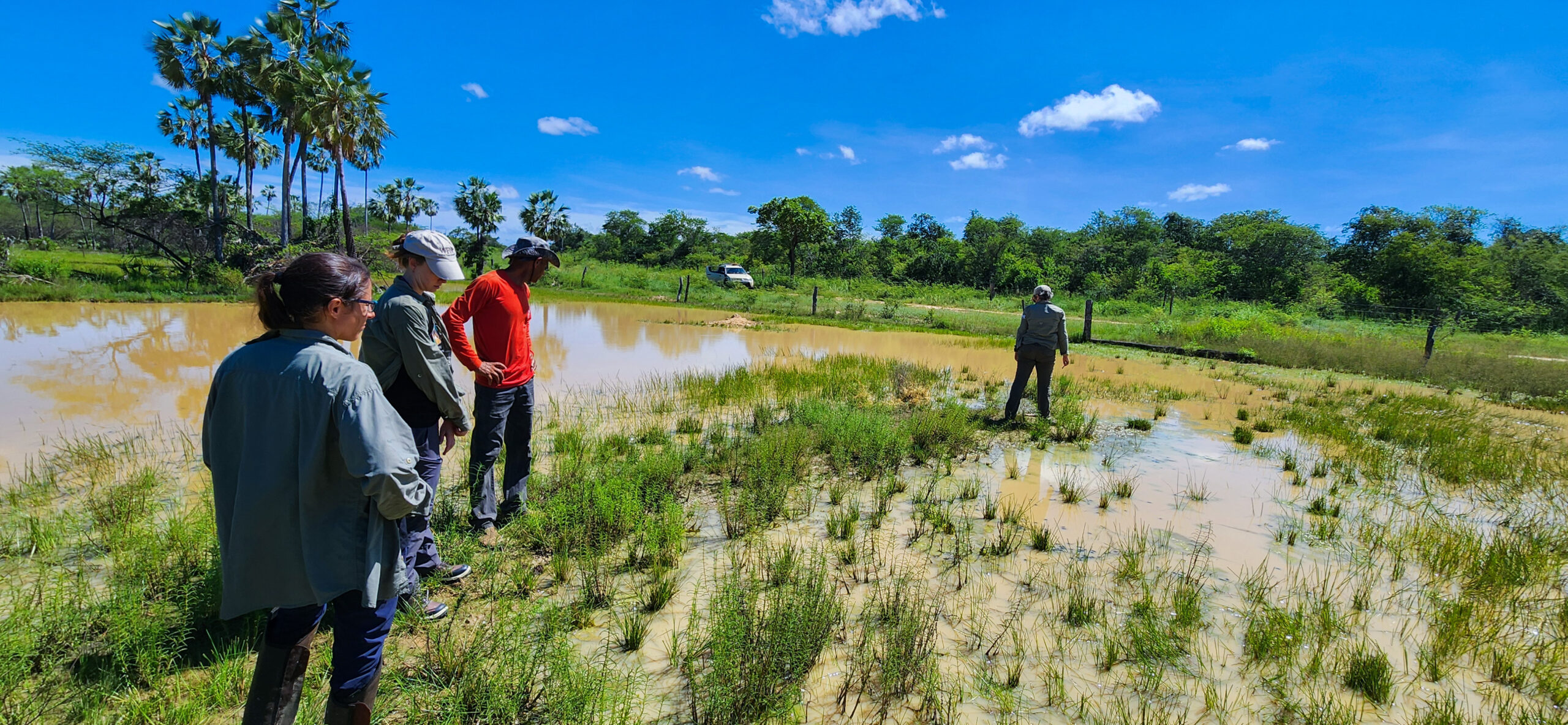Between March 7 and 30, the team from LTCI – Lowland Tapir Conservation Initiative (INCAB in Portuguese – National Initiave for Tapir Conservation), a project by IPÊ, will be in the Caatinga for the third time to deepen research on the Brazilian tapir in this biome. During expeditions carried out in 2023-2024, the team discovered that the species was not extinct in the biome, as previously thought. This year, the researchers will travel through parts of western Bahia and southern Piauí in what will be the last prospecting expedition to then complete an overview of the current existence of the species in the biome.
The story of INCAB-IPÊ with the tapir in the Caatinga started in 2012. At that time, a group of researchers, including members of INCAB-IPÊ, was recruited by the Chico Mendes Institute for Biodiversity Conservation (ICMBio) to assess the conservation status of Brazilian ungulates – tapirs, peccaries and deer – for the preparation of the National Red List. “At that time, an assessment was carried out at the level of Brazil and another at the level of biomes. The professionals present, myself included, listed the tapir as ‘Regionally Extinct’ in the Caatinga, since the limited data and information available at that time indicated this. Since then, we still continued to think a lot about why we made such an important decision based on so little information! Then came the desire to travel through the Caatinga in search of more consistent information about the history of the tapir in the region, both its past and its present”, explains Patrícia Medici, coordinator of INCAB-IPÊ.
In 2023 – 11 years later – the idea came to fruition and the team carried out their first trip through the Caatinga – the “In Search of the Lost Tapir” expedition. With crowdfunding funds, the team covered a 10,000-kilometer route in 31 days, through different regions of the Caatinga in the states of Minas Gerais, Bahia and Piauí, places where there was any kind of evidence of the historical or current existence of the animal, both in the center and on the edges of the biome. This expedition was largely based on interviews with local residents, mostly elderly people who had memories and stories from their ancestors. The primary objective of this first expedition was to recover people’s memories of the animal in the biome. They also hoped to collect information on the potential presence of the species in the area.
At that time, the information gathered in interviews allowed us to confirm that the tapir was present in the biome in the past. It was possible to go back about 400 years. This animal even lived in more central regions of the Caatinga, such as Chapada Diamantina in Bahia, and these populations were lost due to habitat loss, hunting and reduced water availability. Regarding the current presence of the tapir in the Caatinga, evidence was found on the edges of the biome, at the interface with the Cerrado. Despite everything, the team returned home still full of doubts.
The second expedition to investigate specific areas in more depth was carried out in 2024. The team traveled more than 6,000 kilometers over 20 days, passing through the western region of Bahia and the surroundings of the Serra das Confusões National Park, in Piauí. The current presence of the tapir was determined through signs of the animal detected by the team itself and a video from a camera trap. Without a doubt, this was the expedition that proved that the tapir is not extinct in the Caatinga!
“The importance of this discovery lies in the fact that a local extinction, for any species, is a severe situation. Population declines and local extinctions indicate a compromise in the conservation status of a given species. The data collected during the 2024 expedition provided robust evidence that the tapir did not become extinct in the Caatinga. We know that significant population declines occurred, but everything indicates that the tapir never actually became extinct in the region,” says Patrícia Medici.
In this third expedition, the team will search for evidence of the tapir’s current presence in more inland areas of the Caatinga, once again in the states of Bahia and Piauí. The information gathered will be essential for evaluating the species for our National Red List – a process that is already underway – and, later, for the National Action Plan for the Conservation of Ungulates, both conservation tools of ICMBio – the Chico Mendes Institute for Biodiversity Conservation.


